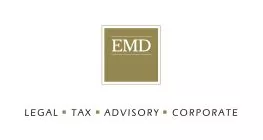The Bank for International Settlements triennial FX survey, published in early September of 2010, revealed that the currency markets, already the largest traded market in the world, had risen to record levels. The leap in average daily volumes from $3,300bn in 2007 to $4,000bn this year was led by an almost 50 per cent increase in spot FX, to $1,500bn per day. The survey also revealed the increasing participation of hedge funds, pension funds and mutual funds in FOREX, which many see as confirmation of the growing acceptance of foreign exchange as an asset class.
Such growing acceptance may be the direct result of currency markets having a low correlation to other markets. During the financial crisis, most risk assets fell sharply and correlations across asset classes increased, but investors who were long 'safe haven' currencies or short 'risk' currencies generated good returns. Since FX pairs are simply a ratio of one currency to another, FX markets cannot crash in unison with other asset classes because when one currency falls, by definition, the other must rise.
Fund managers have now realised that pursuing an active FX strategy can go beyond reducing risk and add real value to a portfolio. Take-up of FX strategies is also being fuelled by the development of new investment vehicles. The size and liquidity of the FOREX market lends itself well to vehicles that allow for frequent redemptions, such as mutual funds, exchange traded funds and exchange traded currencies (ETCs). ETCs enable investors to gain exposure to foreign exchange movements through a listed security, which tracks currency indices that aim to reflect movements in exchange rates between two currencies, plus exposure to local interest rates.
The Malta Financial Services Authority (MFSA) is the single regulator for financial services in Malta and is responsible for the issue of all financial services licenses, including banking licenses and FOREX licenses. Because of the European standards that the MFSA adheres to, when applying for a FOREX license one is applying for a recognized and well regulated FOREX license.
Under the Malta Investment Services Act (ISA), providing a specified service, in or from Malta, in relation to foreign exchange acquired or held for investment purposes, is a licensable activity. Thus businesses which provide services in relation to FOREX are required to obtain a licence from the MFSA. The same can also be said for businesses which provide services in relation to derivative instruments such as options, futures, swaps, forward rate agreements and CFDs in relation to FOREX. Derivative instruments such as CFDs and derivatives in relation to FX also qualify as 'instruments' under MIFID, and thus enjoy automatic passporting rights throughout the European Economic Area (EEA). Furthermore, certain types of spot FOREX contracts (rolling spot FOREX) may be deemed to be equivalent to transactions made using derivatives and may thus also be passportable. As Malta is a member of the EU, the products and services covered under the Malta licence can be passported into all of the other EEA member states. Passporting reduces cost and bureaucracy and opens up markets while helping to maintain investor confidence in high regulatory standards. Thus, through the right to passport, a Malta licensed investment services company is able to operate in any other EEA member state either directly or through the establishment of a branch. This may be regarded as a very attractive advantage by non-EU companies wishing to expand their operations into Europe.
Firms who wish to obtain an investment services licence in order to be able to provide services in relation to FOREX in or from Malta have a number of different options to consider depending on the type of activities they wish to undertake in relation to foreign exchange.
Online FOREX trading is generally provided in one of two forms, either by dealing on own account or by acting as a riskless principal (often as a 'white label partner'). With respect to the latter, the entity would be involved in executing two matching trades (one with the client and one offsetting trade with another principal) entered at the same time and price, with the entity acting as counterparty to both transactions. This is considered as execution of orders on behalf of clients. In order for an entity to execute orders on behalf of clients, a category 2 investment services licence is required. On the other hand, an entity which would like to deal on its own account is required to have a Category 3 investment services licence.
The growth which Malta is experiencing in the Foreign Exchange sector shows that it is very well placed to be a base for investment firms interested in obtaining a licence to provide services in relation to FOREX. The local legal and regulatory framework ensures clarity and legal certainty in an area of the law that may not be as clear in other jurisdictions. The right to passport to other EEA countries from Malta is also another important factor contributing to this interest in Malta from FOREX firms, as are its attractive tax regime and competitive operational costs.
The content of this article is intended to provide a general guide to the subject matter. Specialist advice should be sought about your specific circumstances.

